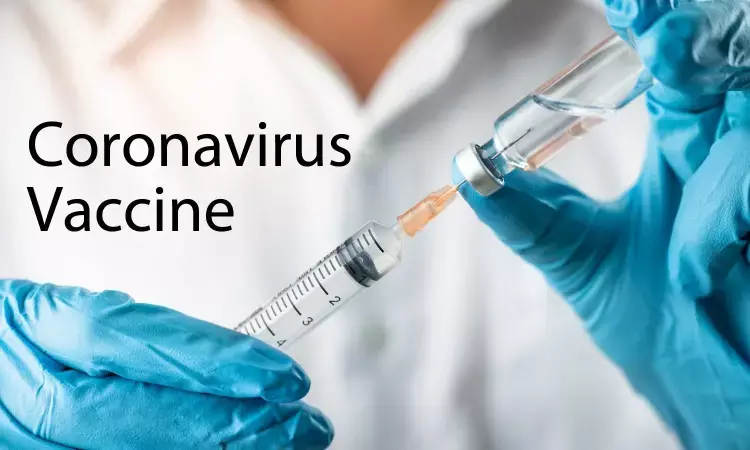- Home
- Medical news & Guidelines
- Anesthesiology
- Cardiology and CTVS
- Critical Care
- Dentistry
- Dermatology
- Diabetes and Endocrinology
- ENT
- Gastroenterology
- Medicine
- Nephrology
- Neurology
- Obstretics-Gynaecology
- Oncology
- Ophthalmology
- Orthopaedics
- Pediatrics-Neonatology
- Psychiatry
- Pulmonology
- Radiology
- Surgery
- Urology
- Laboratory Medicine
- Diet
- Nursing
- Paramedical
- Physiotherapy
- Health news
- Fact Check
- Bone Health Fact Check
- Brain Health Fact Check
- Cancer Related Fact Check
- Child Care Fact Check
- Dental and oral health fact check
- Diabetes and metabolic health fact check
- Diet and Nutrition Fact Check
- Eye and ENT Care Fact Check
- Fitness fact check
- Gut health fact check
- Heart health fact check
- Kidney health fact check
- Medical education fact check
- Men's health fact check
- Respiratory fact check
- Skin and hair care fact check
- Vaccine and Immunization fact check
- Women's health fact check
- AYUSH
- State News
- Andaman and Nicobar Islands
- Andhra Pradesh
- Arunachal Pradesh
- Assam
- Bihar
- Chandigarh
- Chattisgarh
- Dadra and Nagar Haveli
- Daman and Diu
- Delhi
- Goa
- Gujarat
- Haryana
- Himachal Pradesh
- Jammu & Kashmir
- Jharkhand
- Karnataka
- Kerala
- Ladakh
- Lakshadweep
- Madhya Pradesh
- Maharashtra
- Manipur
- Meghalaya
- Mizoram
- Nagaland
- Odisha
- Puducherry
- Punjab
- Rajasthan
- Sikkim
- Tamil Nadu
- Telangana
- Tripura
- Uttar Pradesh
- Uttrakhand
- West Bengal
- Medical Education
- Industry
Pfizer, BioNTech coronavirus vaccine shows fewer side effects

New York: US-based Pfizer and German biotech firm BioNTech announced positive results for the Phase 1 trial of their second Covid-19 vaccine candidate, revealing that the latest vaccine candidate has fewer side effects than their first.
According to the report, the reason was that the second vaccine seemed to generate a similar immune response, but fewer side effects.
On Thursday, they posted the results from all 332 people who received either vaccine, referred to as vaccines B1 or B2 - and indeed, B2 recipients experienced markedly fewer adverse events tied to the vaccine.
"Obviously, the better tolerated the vaccine, the more I think it will encourage public acceptance of a broad immunization," William Gruber, the senior vice president of vaccine clinical research and development at Pfizer, was quoted as saying to Statnews.
"Both would have been great candidates. We were fortunate that B2 actually satisfied having both a favourable immune profile and fewer reactions," Gruber added.
The study tested doses of each vaccine ranging from 10 micrograms to 100 micrograms. The 30-microgram dose of B2 is being taken forward in clinical trials.
With the original vaccine, called BNT162b1 or B1, patients between the ages of 18 and 55 had adverse events thought to be related to the vaccine 50 per cent of the time at the 30-microgram dose.
Those between the ages of 65 and 85 had related adverse events 16.7 per cent of the time.
For the second vaccine, BNT162b2 or B2, patients between 18 and 55 had adverse events thought to be related to the vaccine 16.7 per cent of the time, and no adverse effects thought to be related to the vaccine were reported in those between the ages of 65 and 85.
Both vaccines use mRNA - the genetic messenger the body uses to make the DNA code into proteins - packaged inside a fatty capsule, called a lipid nanoparticle, that allows it to get into cells.
The mRNA instructs cells to make a protein, which then triggers the immune system into action.
According to the report, Pfizer has said that some data from its large study of the B2 vaccine could come as early as October.
Medical Dialogues Bureau consists of a team of passionate medical/scientific writers, led by doctors and healthcare researchers. Our team efforts to bring you updated and timely news about the important happenings of the medical and healthcare sector. Our editorial team can be reached at editorial@medicaldialogues.in.


